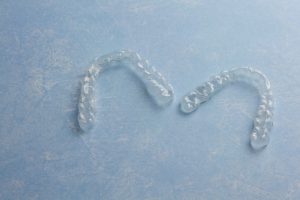Osteoporosis and Dental Health: Answers from a Dentist in Arlington
August 28, 2018
 Bones and teeth share remarkable similarities. Both contain high levels of calcium. Each is integral to how your body functions. But it’s a mistake to think that teeth and bones are the same thing. They’re not. Teeth are stronger, for example. They also contain higher levels of collagen, a material that gives them not only rigidity but flexibility.
Bones and teeth share remarkable similarities. Both contain high levels of calcium. Each is integral to how your body functions. But it’s a mistake to think that teeth and bones are the same thing. They’re not. Teeth are stronger, for example. They also contain higher levels of collagen, a material that gives them not only rigidity but flexibility.
Symptoms of Osteoporosis
Nonetheless, teeth and bones are interlinked when it comes to the structure of your jaw and skull. The bones in your jaw support your teeth, enabling them to chew your food effectively. Certain types of osteoporosis can affect this support mechanism. When this happens, you may notice symptoms like these:
- Swelling or discomfort in your teeth or gums.
- Increased incidence of dental problems, including loose or missing teeth.
- A sensation of numbing or heaviness in your jaw.
- A general sense of fatigue or discomfort.
What is Osteonecrosis?
Osteonecrosis is a disorder related to osteoporosis in which bones in the jaw or other parts of the body begin to die. Symptoms can resemble those of osteoporosis, but are often more severe. Osteonecrosis is sometimes caused by certain types of medication. Other times, hereditary or lifestyle factors play an important role.
Only your dentist or physician can diagnose either condition. Make an appointment right away if you’re concerned about these issues. In the meantime, there are some things all of us can do to help keep our teeth and bones healthy. These include:
- Getting plenty of calcium, either from nutritional supplements or natural sources like reduced-fat cheese, milk, and yogurt.
- Quitting smoking. Researchers have found a correlation between tobacco use and osteoporosis. Ask your healthcare professional about new therapies and medications that can help you to kick the habit for good.
- Limiting consumption of alcohol and caffeinated beverages. Both substances can reduce the amount of calcium available for your bones and teeth.
- Staying physically active. People who suspect they have osteoporosis or osteonecrosis should see their doctor or dentist before starting an exercise program, as their condition may require them to take special precautions.
- Adding vitamin D to your diet. This will help to keep your teeth and bones strong. Nutritional supplements are a good way to ensure you receive adequate amounts of this important vitamin.
- Brushing, flossing and seeing your dentist for regular cleanings and checkups. A loose or missing tooth can weaken the structure of your jaw, creating a vicious cycle that puts your other teeth at risk.
Aging is a part of life which we all must deal with sooner or later. But there are many things that modern medicine can do to help you stay healthy as you get older. Talk to your dentist in Arlington about your options. You may discover that you have plenty of reasons to smile.
About the Author
Dr. Stephen Wardlaw studied dental science at Baylor University School of Dentistry, graduating in 1998 with a DDS degree. He hones his skills by taking continuing education courses throughout the year. You can reach his office online or by calling (817) 572-5115.
No Comments
No comments yet.
RSS feed for comments on this post.
Sorry, the comment form is closed at this time.

